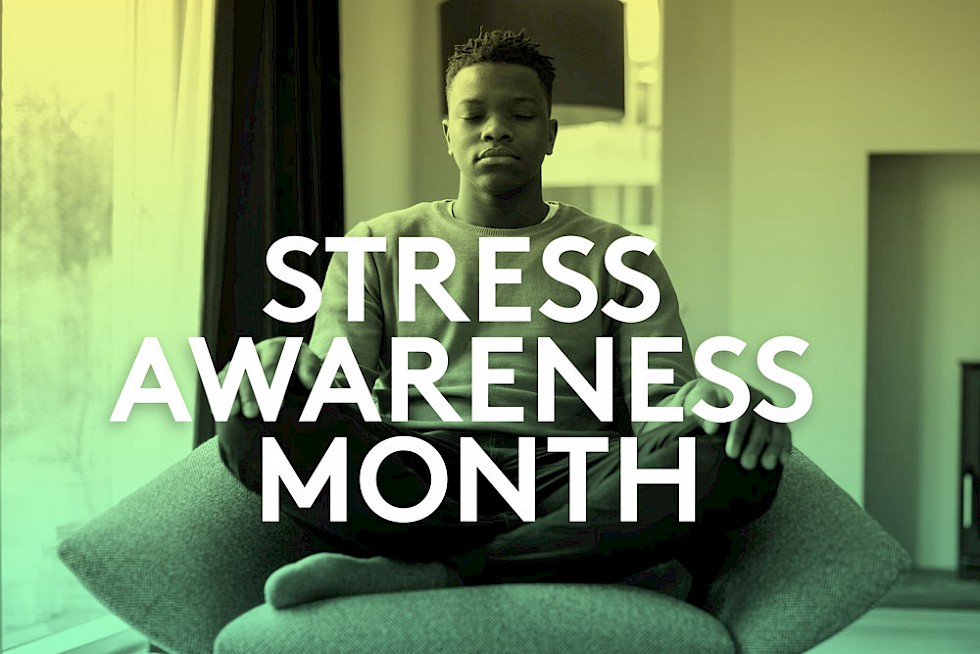Five tips to help you de-stress during stress awareness month

April is Stress Awareness Month, and for the rest of the month, we’re going to focus on ways to de-stress.
Stress comes in many different forms, but it is generally a feeling of emotional or physical tension. It’s our body’s reaction to certain challenges or demands.
Some of us might experience emotional signs of stress, such as constantly worrying or feeling forgetful. Others of us may experience physical signs of stress, such as muscle tension or headaches. Some of us may experience both of these, while some of us won’t notice any changes at all.
This blog is our first step on our journey of de-stressing. Over the next few weeks, we’ll be releasing more blogs and resources packed with ideas and things you can do to de-stress, unwind, and feel a sense of calm.
So let’s start with five things you can try immediately to boost your mental wellness.
1, Exercise
Exercise is not only good for your physical health, but it’s also great for your mental health. Walking or jogging for at least 10 minutes will help to release endorphins into the bloodstream and boost your mood.
Have you tried yoga?
Practising yoga brings together the mind and body. The poses, meditation, and breathing exercises help to encourage relaxation and decrease the secretion of cortisol, the primary stress hormone.
Look out for our blog on great places to walk in Sussex and some live yoga sessions you can join coming up towards the end of the month.
2, Healthy Eating
Eating healthy foods can reduce the negative effects of stress on our bodies. Stress can have a negative impact on our blood flow which can cause fluctuations in brain blood flow and brain health. However, if you start adding omega-3s, found in oily fish, and vitamin E, found in sunflower seeds, almonds, spinach, and avocados, to your diet, they can help to alleviate stress.
Look out for a special guest blog from one of Complementary Healthcare degree lecturers who is a nutritional expert!
3, Sleep
Being stressed can also affect your sleep. When you’re tired, you become more impatient and easily agitated, which only increases your stress further. Scientists say that we need 7-8 hours of sleep per night, and that magic number can help to reduce the effects of stress.
Are you struggling with sleep?
Try setting your bedtime and wake-up time according to the number of hours of sleep you are currently getting- then gradually increase it every couple of nights. This will squeeze out the middle of the night-time awakening and gradually increase the amount of sleep you get during the night.
You should also factor in winding down time in the evening. Give yourself a buffer zone an hour or two before bed to allow your brain to wind down and let your sleep systems take over.
4, Reading
We read things every day, but reading for pleasure can help to reduce stress. Opening a good book can help you to escape the stresses of everyday life. A study by the University of Sussex found that reading can reduce stress by up to 68%. Reading relaxes your body by lowering your heart rate and easing the tension in your muscles.
Look out for our blog about some of the best books and podcasts to read and listen to coming up in a couple of weeks.
5, Gardening
Over the last 12 months, gardening has been so popular, and it’s no coincidence that it is great for your mental and emotional wellbeing.
Gardening is a chance to make the most of natural daylight and sunshine. Research says that sunlight helps the body to release serotonin and give our Vitamin D levels a boost. Looking after flowers, plants, fruit, and vegetables will give you a great sense of achievement and lift your mood!
Look out for our gardening blog with loads of tips to help you get started with gardening. We’ve also got an exciting competition coming up at the end of the month where you could win gardening goodies from Chalk Farm in Eastbourne.
Recent
19 April 2024
ESC Alumna Makes Professional Debut in Starlight Express
Ashlyn Weekes has been cast in the brand new London production.
18 April 2024
Alumna Triumphs at Olivier Awards with Dinosaur World Live
The Olivier Awards are recognised internationally as the highest honour in British theatre.
18 April 2024
The Perfect Parent Guide to Year 10 Taster Days
Becoming an East Sussex College student for the day gives Year 10s a flavour of the sorts of things they can study once they have finished school.